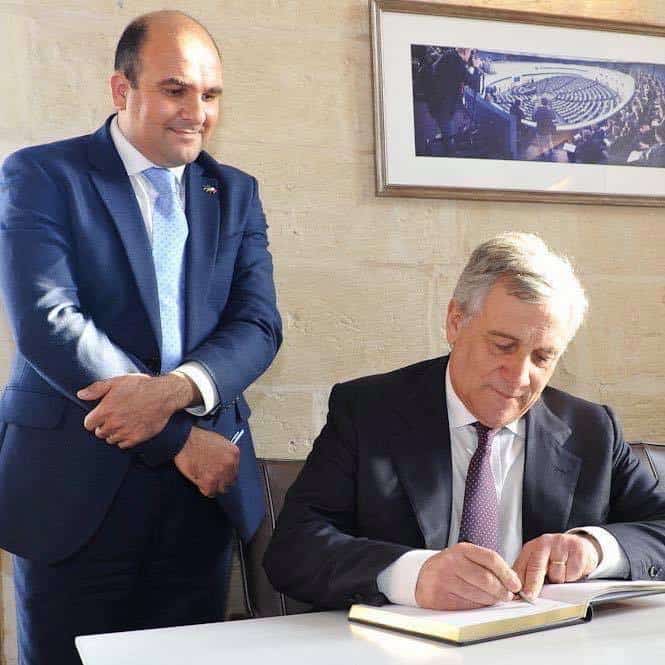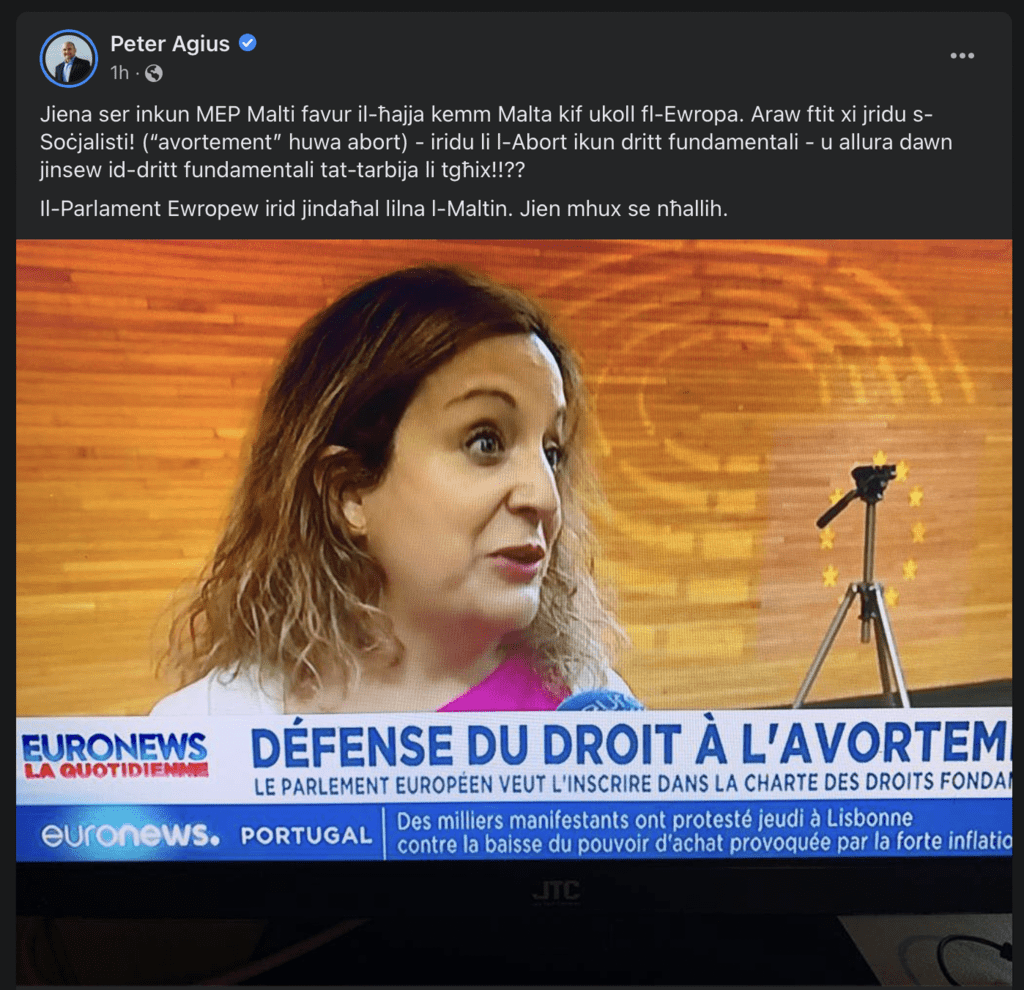
I wasn’t a witness to the conversations that mattered but I was close enough to hear the whispers. After years of struggle and pointless controversy Malta was on the eve of a referendum that would decide whether the country would join the EU.
Those of us in favour of joining had spent little time over the years trying to get people to share our enthusiasm for a more federal Europe made up of countries pooling their sovereignty to avoid wars we knew about from books and nobody we spoke with remembered. Instead, we were most of the time sucked into allaying utterly unjustified fears brought about by people who would twist half-truths to scare people away from Europe.
Maltese boys would be flown back to their wailing mothers in body-bags, the people were told, dying in wars fought at an imaginable distance. Local hairdressers would be forced into destitution as we’d be overwhelmed by Sicilians escaping the horror of their country. ST Microelectronics would have to shut down, forced to migrate because of draconian shift rules. The country as a European Union member state would suffer higher incidence of STIs, specifically AIDS.
It all feels a bit ridiculous now.
I wasn’t in the room when it was discussed but I was close enough to hear the whispers that the bishops of the Catholic Church also had their fears about membership in the EU. For the promoters of EU membership, the recalcitrance of Catholic leaders was surprising.
This was 2003. The Pope in Rome was still John Paul II. Like Popes before him since the Second World War he preached European integration. Unlike the Popes before him he preached, before anyone could imagine it could be a serious prospect, the integration of Western and Eastern Europe as a continent coming together, uniting on its shared humanistic and, as he would call them, Christian values.
A year before the referendum in Malta, in 2002, John Paul II explicitly proclaimed that “Europe needs the witness of Malta”.
And yet, on the eve of the EU referendum, the bishops of Malta were nervous and unsure on whether to tell their flock to vote against membership. Their fear was borne from the fact that joining the EU meant joining a federation of countries, all but one of which allowed its citizens, under specific and varying conditions to access abortion.
Telling the bishops that the EU could not impose anything that it is not empowered to legislate on by the Treaty of European Union didn’t work. Telling the bishops that Ireland had been in the EU since 1973 and still at the time did not allow abortions didn’t work.
So, the leaders in Malta went to all the governments of all the countries already in the EU and all the government of those other countries who were waiting to join it to sign a piece of paper that said what was already implicitly but no less unambiguously European law then and now:
“Nothing in the Treaty on European Union, or in the Treaties establishing the European Communities, or in the Treaties or Acts modifying or supplementing those Treaties, shall effect the application in the territory of Malta of national legislation relating to abortion.”
Seeing that, black on white, mollified the bishops who took themselves out of the way of the referendum that finally, by a narrow margin, allowed Malta to join the EU.
That famous “Protocol No 7 on Abortion in Malta” attached to the Treaty that enlarged the EU in 2004 changed nothing materially. It simply recognised the fact that there was nothing in the Treaty that would have allowed any EU institution to enforce abortion on a Member State unwilling to introduce it, and, until and unless Malta signed a new Treaty that said otherwise, that just could and would not change.
It hasn’t changed yet.
Few people can understand this better than the veteran of the EU institutions Peter Agius who is taking another shot at getting elected to the European Parliament on the PN ticket.
And yet here he is on his Facebook page not only sporting his anti-abortion credentials (which are all but irrelevant in an institution that can only talk but not legislate about introducing abortion in Malta) but also stating a fact that he knows not to be true: “The European Parliament wants to interfere in Maltese affairs. I will not let it.”

The fact is MEPs in their great majority may very well vote to promote the policy that all European women should have access to safe and affordable abortions. Also, the fact is that some MEPs might disagree with that notion and for voters who want their anti-abortion views to be represented in Parliament an anti-abortion candidate like Peter Agius would be a legitimate choice.
But none of this gives Peter Agius the license to represent himself on behalf of “il-Maltin” as some crusader fighting a jihad against “il-Parlament Ewropew” misrepresenting an institution which he knows is meant to reflect the broad views of Europeans and to defend our rights to hold those views as some enemy of the foetus-loving Maltese people.
It is deeply cynical that a proverbial Eurocrat, someone whose professional career has been about promoting European integration, reverts to populist and nationalistic platitude in the hunt for votes. This is just the sort of demagoguery that drives a wedge between Europe and its citizens.
It is even more disturbingly cynical because this nationalistic and populist rhetoric seems to be a product of the calculus that his formidable opponent for votes coming from PN supporters, Roberta Metsola, as president of the Parliament finds herself representing the more widely held view in the European Parliament that abortion is a right and therefore singing a dissonant note in the ears of many of her and his constituents.
That is just the sort of cynicism that justifies the retort that anti-abortion politicians are less bothered by foetuses and more focused on eminently born human beings who are capable of casting them their votes.